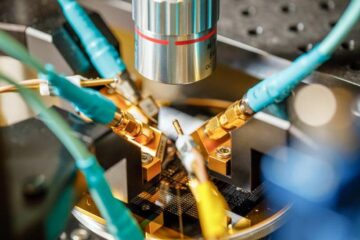Mayo Clinic finds estrogen may prevent younger menopausal women from strokes

Researchers combined the results from a recent Mayo Clinic study with six other studies from across the world and found that estrogen is protective for stroke before age 50. That is roughly the average age when women go through menopause.
“We were very surprised because these results were unexpected,” says study author Walter Rocca, M.D., an epidemiologist and neurologist at Mayo Clinic. “The old idea that estrogen is always a problem in the brain has to be corrected.” Estrogen can be a problem in older women, he explains, but in younger women, estrogen may be important to protect the brain from strokes.
The study has implications for women who experience premature (before age 40) or early menopause (before age 45) from natural causes or from ovary removal. Women in these groups should consider taking estrogen up to approximately age 50 to prevent stroke, Dr. Rocca says.
Ischemic stroke occurs as a result of an obstruction within a blood vessel supplying blood to the brain. According to the American Stroke Association, these types of strokes account for 87 percent of all stroke cases.
Co-authors of the study include: Brandon Grossardt, M.S.; Virginia Miller, Ph.D.; Lynne Shuster, M.D.; Robert Brown, Jr., M.D.
About Mayo Clinic
Mayo Clinic is a nonprofit worldwide leader in medical care, research and education for people from all walks of life. For more information, visit MayoClinic.com or MayoClinic.org/news.
VIDEO ALERT: Additional audio and video resources, including excerpts from an interview with Dr. Walter Rocca describing the research, are available on the Mayo Clinic News Blog. The password for this post is stroke.
Media Contact
More Information:
http://www.mayo.eduAll latest news from the category: Health and Medicine
This subject area encompasses research and studies in the field of human medicine.
Among the wide-ranging list of topics covered here are anesthesiology, anatomy, surgery, human genetics, hygiene and environmental medicine, internal medicine, neurology, pharmacology, physiology, urology and dental medicine.
Newest articles

‘Smart’ contact lenses could someday enable wireless glaucoma detection
Most people with early-stage glaucoma don’t know they have it, even though early treatment is key to reducing vision loss. While detecting a subtle increase in eye pressure helps doctors…

New tech may lead to smaller, more powerful wireless devices
Good vibrations… What if your earbuds could do everything your smartphone can do already, except better? What sounds a bit like science fiction may actually not be so far off….

Caution, hot surface!
An international research team from the University of Jena and the Helmholtz Institute Jena are demystifying the mechanisms by which high-intensity laser pulses produce plasma on the surface of solids….





















